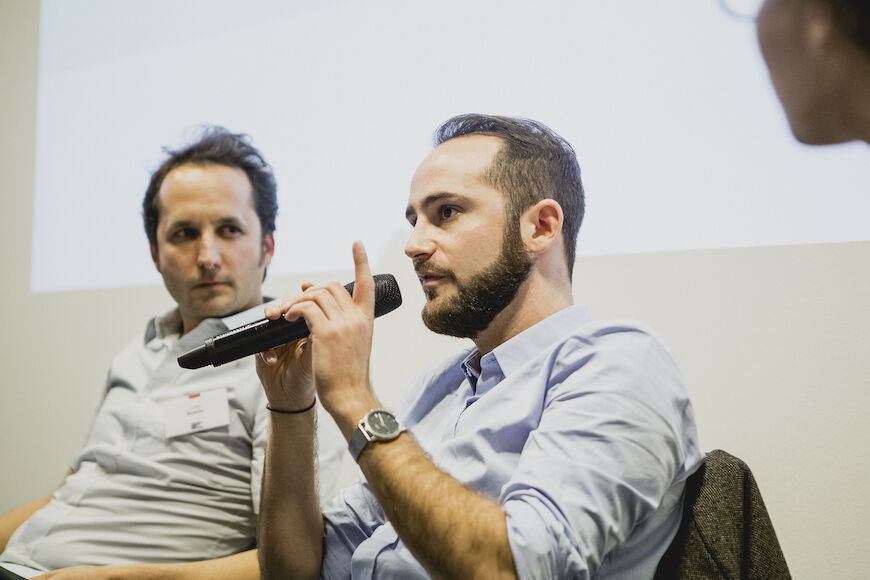Blowing the whistle for the public interest in the digital age
Two years ago, two former PricewaterhouseCoopers employees each received a suspended sentence in the Luxembourg Leaks, or LuxLeaks, case. They were found guilty for leaking documents that revealed lucrative tax breaks that the Luxemburg government granted to save multinational companies billions of dollars in taxes, including tech giants like Apple, IKEA and PepsiCo. Three years earlier, Edward Snowden, a former tech employee with the United States intelligence service, disclosed the extent of collaboration between intelligence agencies and internet companies in what became the most famous whistle-blowing case in recent history and forever changed the way we think of data protection and security.
Five years after Snowden blew the whistle on the US National Security Agency, social media giants were still rebuilding trust among their online communities when news broke that Cambridge Analytica had unlawfully harvested private data for use by a consulting company. Yet again, we have a former employee of the company to thank for the discovery.
In all three situations, former employees transgressed their contractual obligations by revealing information inaccessible to the public. By blowing the whistle, they raised a red flag on unethical and unlawful practices by a State and tech companies directed against the public.
Now the draft law put forward in April 2018 by the European Commission seeks to regulate better protection for whistle-blowers who act in defence of the public interest.
“Whistle-blower protection offers at least some counterbalance to the digital information monopolies of our times,” says academic and author Philip Staab, currently researcher in macrosociology at the University of Kassel and the Institute for the History and Future of Work in Berlin.
Co-author of a recent paper by Friedrich-Ebert-Stiftung that charts how global powers are shifting through digital dominance (link), Staab joined in a conversation with FES Connect Managing Editor Mila Shopova on the potential bearing of the proposed law on whistle-blowers and other necessary steps to safeguard the public interest in the age of big-tech companies and the digital economy.
It is former employees who blew the whistle on their bosses in the world’s most widely known abuses of online data privacy, state surveillance and cyber tax fraud scandals. How important is it for society to consider protection of whistle-blowers a worker’s right in the age of digitalization and digital technology?
I think it is vitally important. Whistle-blower protection offers at least some counterbalance to the digital-information monopolies of our times. There is a huge gap between the hopes for decentralization [with] more democratic control of knowledge and information through the internet and the realities today. Economic growth in the digital economy is more and more based on information control by big companies. Big profits today come from two areas: intangible assets—intellectual property rights and patents, for example—and big data operations. In both cases, information control is key to success. With the control of information comes enormous power for a rather small number of global companies. Protecting whistle-blowers is the least we can do in a situation where it is ever more difficult to hold these companies accountable for possible violations.
In April 2018, the European Commission proposed a European Union-wide law to better protect whistle-blowers who, in the name of the public interest protection, reveal breaches of EU law. How novel is this step, and what would such a law help with in the realm of the digital age?
As far as I know, this is a rather novel step. Even though we had debates about better whistle-blower protection in many countries after Snowden, etc., not that much has happened so far. This is understandable, as powerful interests in the corporate world argue, for good reasons, that business secrets need to be protected. This protection, however, should not come at the expense of employees uncovering unlawful actions. In the best-case scenario, an effective protection of whistle-blowing would prevent companies from wrongdoing in the first place.
How do you see the proposed law changing labour relations? Where could a backlash come from?
At least in Western Europe, we have for decades agreed on the fact that you don’t give up your civil rights and duties once you pass the company gate. Keeping this idea of citizenship at work in mind, it seems strange, to say the least, that the proposed law does cover, for example, cruelties against animals but not problematic working conditions. You could argue that there are other ways of dealing with such problems, like workers' councils, public authorities or unions. In most European countries though, these institutions are a lot weaker than they were 30 years ago. In this sense, whistle-blower protection could be seen as a new, alternative pillar of contested citizenship at work.
The proposed law on whistle-blower protection covers also privacy, data protection and security of network and information systems. The EU applied a law on this in May, not long after a digital whistle-blower—the former employee of Cambridge Analytica—revealed the scandal involving use of big data and social media to create information warfare. If big-tech companies depend on public support as a measure of their own success, how would the proposed law, which prioritizes the public interest and users’ rights in the digital realm, affect the dominant business model and growth of tech companies?
The [proposed] law can shed some light on otherwise black-box practices in tech companies. But we should not be mistaken: This is not a serious challenge to the economic power of Google, Facebook, Amazon and such. It is part of a reactive way of dealing with economic power in the digital age. This is better than not dealing with it at all. But what we really need in Europe is a proactive regulatory framework flanked by an entrepreneurial state. Such a framework could be Europe’s contribution to digital capitalism. Whistle-blower protection is just a tiny piece of the pie.
Tech companies in China and the United States are some of the biggest firms on the planet, with a combined capital of 4 trillion US dollars. With integrated digital markets at home and squeezed out of dominance on each other’s soil, the Chinese and American tech giants, like Alibaba, Baidu and Tencent and Google, Facebook, Amazon, Netflix and Apple, respectively, are competing for emerging markets in third countries. How can protection of public interests win in the race for digital supremacy and the political interests that lurk behind the China-US big-tech rivalry?
This race is mostly one of corporate power and deep pockets. By expanding and competing in the remaining neutral markets, such companies as Amazon and Alibaba initially create benefits for consumers. In India, for example, Alibaba and Amazon have been in a process of predatory pricing for years. It is hard to imagine that governments would want to prevent this subsidization of consumption initially.
But tech power becomes problematic once these companies become infrastructure providers as well. So, if governments want to find ways to profit from tech-company investments without becoming too dependent, they should find ways to negotiate infrastructure control. Chinese and American companies need to expand, as they face home market saturation. This theoretically creates some leverage for governments in order to negotiate what kind of digital economy they actually want.
With the recent data-protection law at the European Union level at hand and this proposed whistle-blower protection law in the tube, what developments in the realm of digital technology do you see affirming a need for more regulation of the digital market?
In my eyes, the core problem is corporate power. We are dealing with companies that have become so powerful that big parts of the digital economy simply depend on them for economic survival.
Think of app stores: No app developer can do anything without the big proprietary platforms. These platforms then are the place where all the data that are needed for the development of new technologies and services come together. The puzzle we need to work out is how to create a framework where citizens and companies can have access to data without being dependent on a handful of big corporations and where privacy is protected at the same time. It is hard to imagine such a framework without any sort of public guarantee for data safety.
“The people are still powerless, but at least now they are aware,” Edward Snowden was recently quoted in an interview on his legacy as the whistle-blower of the camaraderie between the state surveillance apparatus and internet companies. If governments are still surveilling and tech companies are harvesting data to win new markets, what should we do as internet users to help the public interest prevail in a digital age where it’s virtually impossible not to leave a digital footprint?
When I talk to my students about this issue, they are still rather carefree. Their attitude goes something like this: “Google and Facebook care about me only as a consumer and what would intelligence agencies care about me?" They don’t really mind.
I find that attitude problematic but also understandable. At the same time, it makes me sceptical about the chances for policies that are based mostly on the assumption that people will go the extra mile in order to be protected from surveillance—no, they do not read the terms of use.
In my eyes, big parts of the commercial internet nowadays have taken on the character of quasi-public utilities, and they should be governed in this way. This would mean stricter oversight and harder punishments in case of unlawful behaviour. The challenge then is to avoid the Chinese way and instead make the internet compatible with liberal societies.
###
For more information on the work by FES on digitalization and the digital economy, contact Philipp Fink, Programme Officer at the Division for Economic and Social Policy, Friedrich-Ebert-Stiftung in Berlin.
About FES Connect
Connecting people, in the spirit of social democracy, we source and share content in English from the German and international network of the Friedrich-Ebert-Stiftung.














